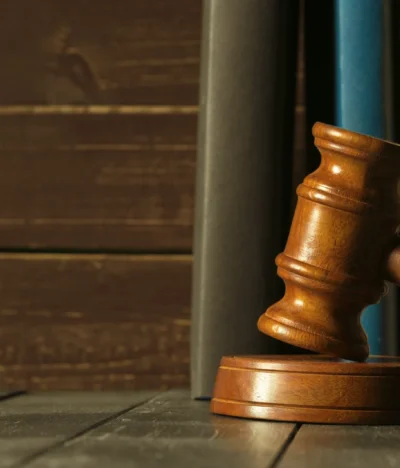The Covid-19 pandemic and the unprecedented lockdowns in both the UK and internationally have seen a rapid increase in queries relating to force majeure clauses. This article summarises the main legal principles and practical considerations.
Disclaimer: The information in this article is intended for general information only and reflects the position in the law at the date of publication. It does not constitute legal advice and should not be treated or relied upon as such. It is provided without any representations or warranties, express or implied.
Force Majeure: The Law
A force majeure clause excuses or delays the performance of contractual obligations upon the occurrence of a certain event which is outside the reasonable control of the party alleging the force majeure event. When force majeure is asserted there are a number of considerations for both parties.
Is there a force majeure event?
The event in question must fall within the contractual definition of circumstances or occurrences capable of triggering the force majeure clause. The list of events in the contract is exhaustive and the court will look at the natural meaning of the words used and whether the present circumstances were intended to fall within them.
Typical force majeure events are war, revolution, drastic government interventions and ‘acts of God’, among others. ‘Acts of God’ typically cover natural events which cannot be prevented against, such as earthquakes, tsunamis, floods, etc. Whether a virus pandemic amounts to an ‘act of God’ will depend on a number of factors, such as whether the phrase is defined under the contract, whether the clause defining ‘force majeure’ otherwise includes specific references to pandemics or epidemics, and the governing law of the contract (in contrast to England and Wales, ‘Act of God’ is a recognised legal concept in some jurisdictions).
However, general “cover all” provisions in force majeure clauses that attempt to address any deficiencies in the drafting will be interpreted narrowly. As such, they will not benefit a party who seeks to invoke such provisions where the event in question has no connection with those which are expressly listed.
Has the party’s ability to perform its contractual obligations been prevented, impeded or hindered by the event?
The exact requirements will depend on the contractual wording but all clauses require the party alleging force majeure to show a causal link between the event and its inability to perform the contract. In more lenient contracts the event may only need to have hindered a party rather than prevented it altogether. Either way, the event must be the only cause of the failure/under-performance in question.
Has the party alleging force majeure taken all reasonable steps to try to avoid or mitigate the event or its consequences?
Even if there is a force majeure event, the alleging party cannot rely on it if in fact performance under the contract would have been possible via another reasonable course of action.
Covid 19 as a Force Majeure Event
Parties should not automatically assume that the clause will apply as a result of the impact of Covid 19. The clause must be read carefully, and care must be taken to demonstrate that performance of the contract truly was rendered impossible or substantially more difficult as a result of the virus and its impact. The overall applicability and enforceability of a force majeure will depend upon its construction within the contract and the specific set of circumstances that apply.
Effect of a Force Majeure Event
Typically, a valid force majeure event will have one of two outcomes depending on the drafting of the contract:
-
- Suspend all obligations under the contract for both parties (obligations resume when the specified event ends); or
- Constitute an event of termination – typically a notice must be served on the other party and thereafter liability for non-performance (other than for prior breaches) will ordinarily be extinguished because there is no longer a valid contract.
Practical Considerations
Those wishing to invoke a force majeure clause must assess carefully whether the requirements are met. Where one party wrongfully seeks to terminate on the basis of a force majeure event, the other party may in turn rely upon such a wrongful termination as a repudiatory breach entitling it to terminate the contract and claim damages.
It is important, as ever, to follow the notification provisions of the contract, including requirements for written notice and the specified time periods.
Parties notified of a counterpart’s intention to invoke force majeure should consider checking their insurance arrangements and assessing any impacts that the force majeure event will have on fulfilling their own obligations under onward contracts. It may be worth checking the force majeure provisions of those agreements in case of any misalignment between the definitions of ‘force majeure’.
We recommend that you contact us to obtain legal advice which is specific to both the circumstances in question and the wording of the particular force majeure clause.
Frustration
The doctrine of frustration applies where an event that was not foreseen by the parties, and which does not arise as a result of a breach of contract by either of them, makes performance of the contract impossible.
As with force majeure, frustration requires more than an event that makes performance more difficult or economically less viable. The frustrating event must have made performance impossible or transformed the obligation to perform into something radically different from what was envisaged by the parties when the contract was first formed. The party affected by the frustrating event must also be able to show that it took all reasonable steps to mitigate the impact of the event on its performance of the contract.
Relying on frustration is only possible in circumstances where the contract does not already include an express provision catering to the particular force majeure situations. A carefully drafted force majeure clause that deals with all necessary points, including how costs and losses will be apportioned between the parties, is likely to displace the application of frustration altogether. However, where there are gaps in a force majeure clause the law of frustration may be applied in addition to the terms of the contract.
Conclusion
All businesses should consider the impact of Covid-19 in relation to their ability to perform their contractual obligations. If performance is likely to be affected (such that contractual obligations cannot be complied with) then seeking legal advice in early course is absolutely critical in order to fully assess matters and to devise an appropriate course of action.
Contact Arlingsworth Solicitors Today
The solicitors in our litigation department are on hand 24/7 to provide specialist advice and guidance. Please contact us on +44 (0) 1273 696962. Alternatively, request a callback, or email info@arlingsworth.com. You can also follow us on Facebook, Twitter and LinkedIn for any other important news and updates.







